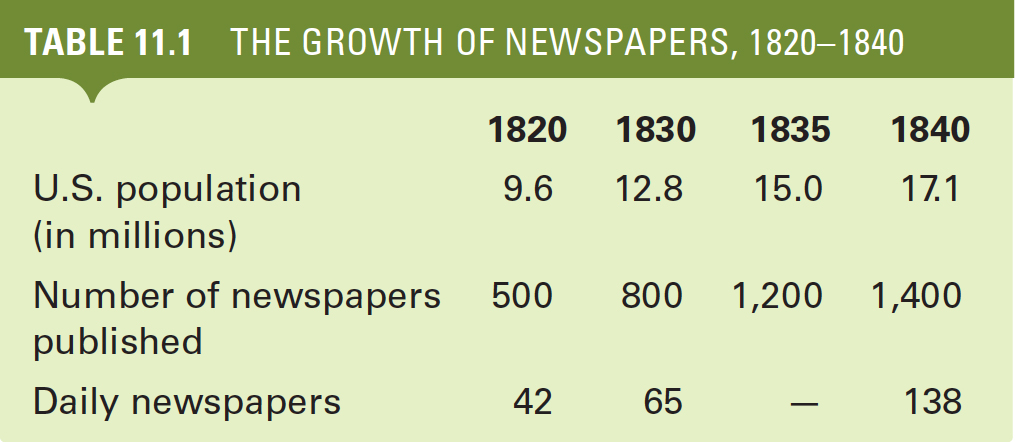Popular Politics and Partisan Identity.
Printed Page 282 Chapter Chronology
Popular Politics and Partisan Identity. The election of 1828, pitting Andrew Jackson against John Quincy Adams, was the first presidential contest in which the popular vote determined the outcome. In twenty-two out of twenty-four states, voters — not state legislatures — designated the number of electors committed to a particular candidate. More than a million voters participated, three times the number in 1824 and nearly half the free male population, reflecting the high stakes that voters perceived in the Adams-Jackson rematch. Throughout the 1830s, voter turnout continued to rise and reached 70 percent in some localities, partly because of the disappearance of property qualifications in all but three states and partly because of heightened political interest.
The 1828 election inaugurated new campaign styles. State-level candidates routinely gave speeches at rallies, picnics, and banquets. Adams and Jackson still declined such appearances as undignified, but Henry Clay of Kentucky, campaigning for Adams, earned the nickname "the Barbecue Orator." Campaign rhetoric became more informal and even blunt. The Jackson camp established many Hickory Clubs, trading on Jackson's popular nickname, "Old Hickory," from a common Tennessee tree suggesting resilience and toughness.
Partisan newspapers in ever-larger numbers defined issues and publicized political personalities as never before. Improved printing technology and rising literacy rates fueled a great expansion of newspapers of all kinds (Table 11.1). Party leaders dispensed subsidies and other favors to secure the support of papers, even in remote towns and villages. Political news stories traveled swiftly in the mail, gaining coverage by reprintings in sympathetic newspapers. Presidential campaigns were now coordinated in a national arena.

Politicians at first identified themselves as Jackson or Adams men, honoring the fiction of Republican Party unity. By 1832, however, the terminology had evolved to National Republicans, who favored federal action to promote commercial development, and Democratic Republicans, who promised to be responsive to the will of the majority. Between 1834 and 1836, National Republicans came to be called Whigs, while Jackson's party became simply the Democrats.
Whigs
Political party that evolved out of the National Republicans after 1834. With a Northeast power base, the Whigs supported federal action to promote commercial development and generally looked favorably on the reform movements associated with the Second Great Awakening.
Democrats
Political party that evolved out of the Democratic Republicans after 1834. Strongest in the South and West, the Democrats embraced Andrew Jackson's vision of limited government, expanded political participation for white men, and the promotion of an ethic of individualism.